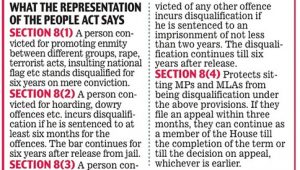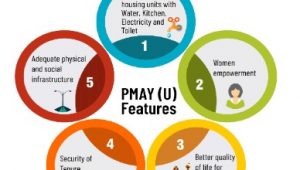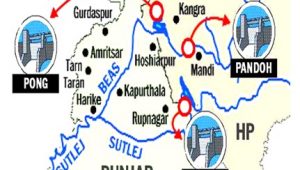
Current Affairs 22 March 2021
- Myanmar border shut amid strains over refugee crisis
- Ongoing military crackdown in Myanmar.
- Political refugees from Myanmar are given asylum and food and shelter in the country.
- Myanmar area bordering Mizoram is inhibited by Chin communities, who are ethnically related to Indian citizens in Mizoram.
- India and Myanmar have an arrangement called Free Movement Regime (FMR).

- Free Movement Regime
- FMR allows locals on both sides to go up to 16 km across the other side of the border and stay up to 14 days without any visa restrictions.
- India and Myanmar share an unfenced border of 1,643 km
- Arunachal Pradesh 520 km
- Nagaland 215 km
- Manipur 398 km
- Mizoram 510 km
- FMR helps tribes across the border to maintain their age-old ties
- But FMR is being misused by militants and trans-border criminals who smuggle weapons, contraband gold’s, and fake Indian currency notes.
- To avoid such misuses in future India had proposed a new Border Management Pact
- As per the Border Management Pact, the four states of Arunachal Pradesh, Nagaland, Manipur, and Mizoram which share unfenced border with Myanmar were asked to distribute Border Pass to all residents living 16 km from the border, thus providing for a structured and regulated mechanism to facilitate the tribal movements and countering insurgents.
- Assam Rifles is the border guarding force in this area.
- The MHA (Ministry of Home Affairs) said the State governments have no powers to grant refugee status to any foreigner and India is not a signatory to the United Nations Refugee Convention of 1951 and its 1967 protocol.
- United Nations Refugee Convention 1951
- It is a United Nations multilateral treaty that defines who is a refugee, and sets out the rights of individuals who are granted asylum and the responsibilities of the nations that grand asylum
- India is not a signatory.

- Scrap page policy can work if incentives are confined to fuel-efficient vehicle replacements.
- The Vehicle Scrap page policy announced by the Transport Ministry, coming after the move for a Green Tax on ageing and polluting automobiles, promises economic benefits, a cleaner environment and thousands of jobs.
- Enforcement will be key to get them scrapped once they are found unfit for use and to stop those moving forward to smaller towns.
- States must also come on board to provide road tax and registration concessions, while the automobile industry is expected to sweeten the deal with genuine discounts.
- More focus towards Electric Vehicles (EVs) and to the most fuel-efficient vehicles.
- Net zero emission target need to be achieved by the mi-century under Paris Agreement

- Paris Agreement
- Signed on 22 April 2016
- By UNFCCC 195 signatories
- UNFCCC – United Nations Framework Convention on Climate Change.
- The agreement intends to reduce and mitigate greenhouse gas emissions.
- The agreement talks about 20/20/20 targets
- Carbon Dioxide emission reductions by 20%
- Work on increasing the renewable energy market share by 20%
- Target to increase energy efficiency by 20%

- Paris Climate Accord
- It is a legally binding international treaty on climate change that was adopted by 196 countries at the Conference of the Parties 21 (COP 21) in Paris in December 2015.
- The main goal is to limit global warming to well below 2°C and preferably limit it to 1.5°C, compared to pre-industrial levels.
- Measures taken by India to Control Emissions
- National Solar Mission
- Bharat Stage (BS) VI norms
- National Wind-Solar Hybrid Policy 2018
- Iran deal could be rescued by the IAEA
- S. and Iran -> Joint Comprehensive Plan of Action(JCPOA)
- IAEA is back on the stage to rescue JCPOA
- IAEA – International Atomic Energy Agency
- It is a UN agency
- Atoms for Peace
- Seeks to promote the peaceful use of nuclear energy, and to inhibit its use for military purpose, including nuclear weapons.
- Formed in 1957
- India is a member
- HQ – Vienna, Austria
- JCPOA
- Iran nuclear deal
- Iran agreed to reign in its nuclear programme in a 2015 deal struck with the US, UK, Russia, China, France, and Germany
- Tehran agreed to significantly cut its stores of centrifuges, enriched uranium and heavy-water, all key components of nuclear weapons
- The JCPOA established the joint Commission, with the negotiating parties all represented, to monitor implementation of the agreement.

- Sexual Harassment of Women at Workplace (Prevention, Prohibition and Redressal) Act of 2013
- The senior IPS officer facing sexual harassment charges made by a serving woman IPS in Tamil Nadu
- Defines sexual harassment as
- It includes “any one or more” of the following “unwelcome acts or behavior” committed directly or by implication: Physical contact and advances, Sexually colored remarks, Showing pornography, A demand or request for sexual favours, Any other unwelcome physical, verbal or non-verbal conduct of sexual nature.
- Vishaka Guidelines, on which the 2013 act was based
- The act is applicable to government offices, the private sector, NGOs and the unorganized sector.

- Key Provisions of the act:
- The act lays down the procedures for complaint and inquiry and the action to be taken.
- It mandates that every employer constitute an Internal Complaints Committee (ICC) at each office or branch with 10 or more employees.
- It lays down the procedure and defines various aspects of sexual harassment.
- A woman can be of any age, whether employed or not, who “alleges to have been subjected to any act of sexual harassment”, that means the right of all the working women or visiting any workplace, in any capacity, are protected under the Act.
- Key Provisions of the act:
- How to treat unpaid work
- Unpaid work is privately produced well which is critical for the sustenance of mainstream economy.
- The private sector would have paid much higher wages and earned lower profits in the absence of unpaid work.
- Unpaid work also subsidizes the government by taking care of the old, sick and the disabled.
- The state would have spent huge amounts in the absence of unpaid works
- Women everywhere carry a disproportionately higher burden of unpaid work, namely, unpaid domestic services as well as unpaid care of children, the old and the disabled for their respective households.
- It is imposed on them by patriarchal norms of the society.
- What government could do
- Recognise this unpaid work in the national database by a sound time-use survey and use the data in national policies
- Government could relieve women’s burden of unpaid work by improving technology
- Better fuel for cooking
- Water at door step
- Shifting some unpaid work to the mainstream
- Child care
- Care of the disabled
- Care for the chronically sick
- Making basic services accessible to women
- Health
- Transportation
- Mandatory training for men in housework, childcare etc
- These measures will give free time to women and open up new opportunities to them.
- Indian-Israeli collaboration testing oral COVID vaccine
- Premas Biotech, a Guru am-based biotechnology firm, and Oramed Pharmaceuticals, a Jerusalem headquartered company.
- The nascent COVID-19 vaccine is a ”protein-based VLP (Virus Like Particle) vaccine candidate”.
- This generates “triple protection” against the SARS CoV-2, i.e., it is able to target the spike, membrane, and envelope proteins of the coronavirus.
- However the findings is not been reported in a scientific publication yet and cannot be independently verified.












